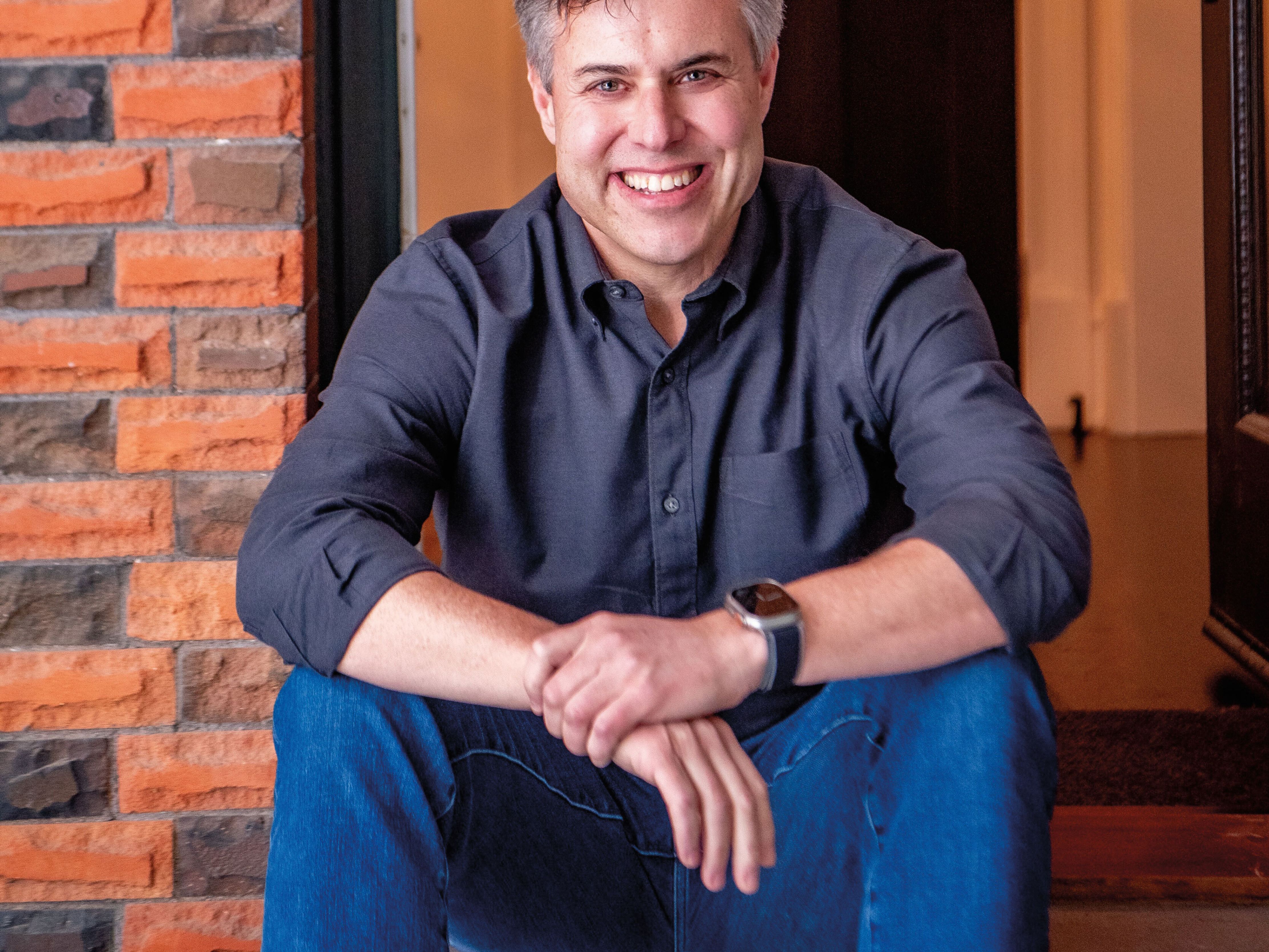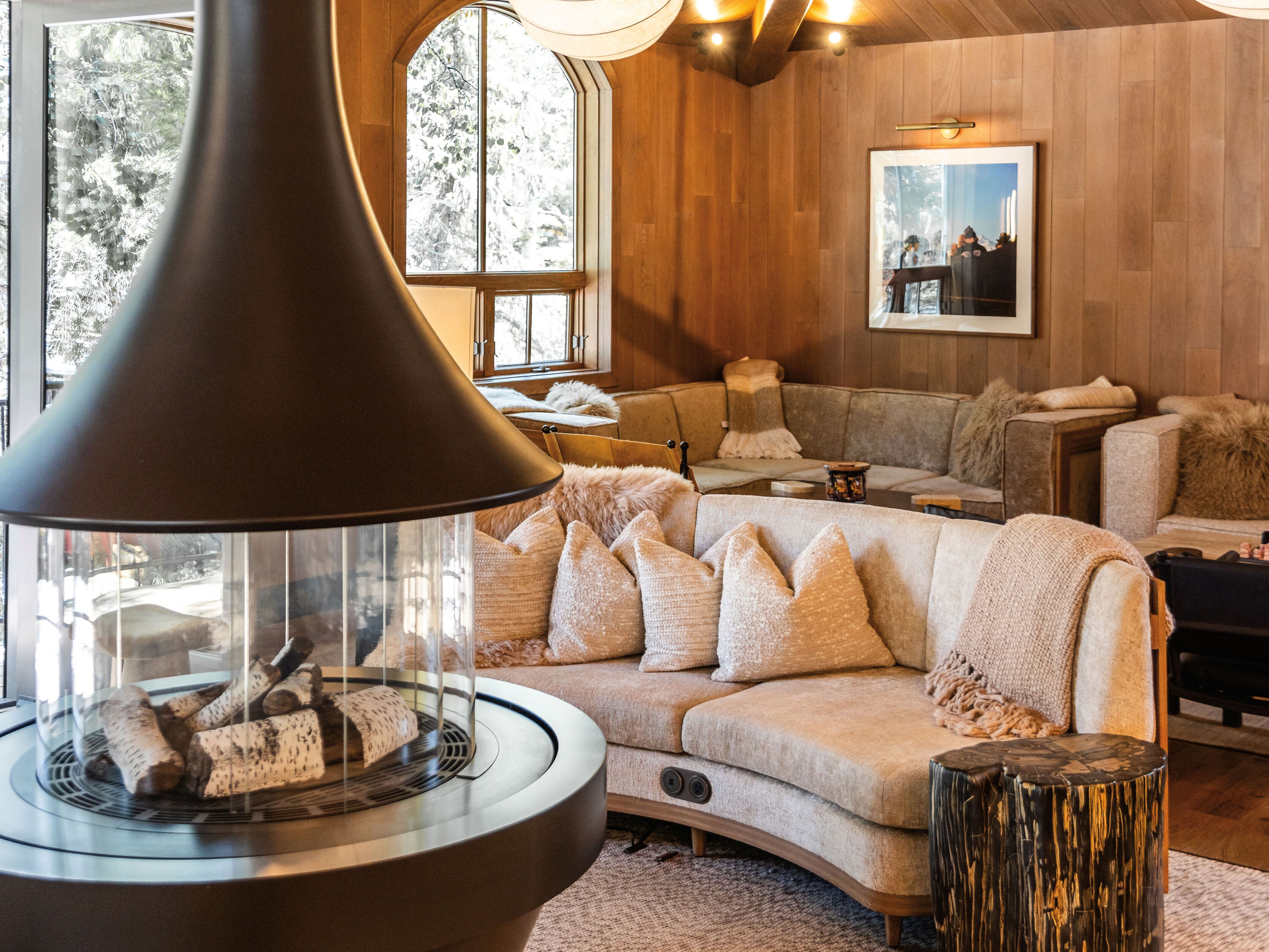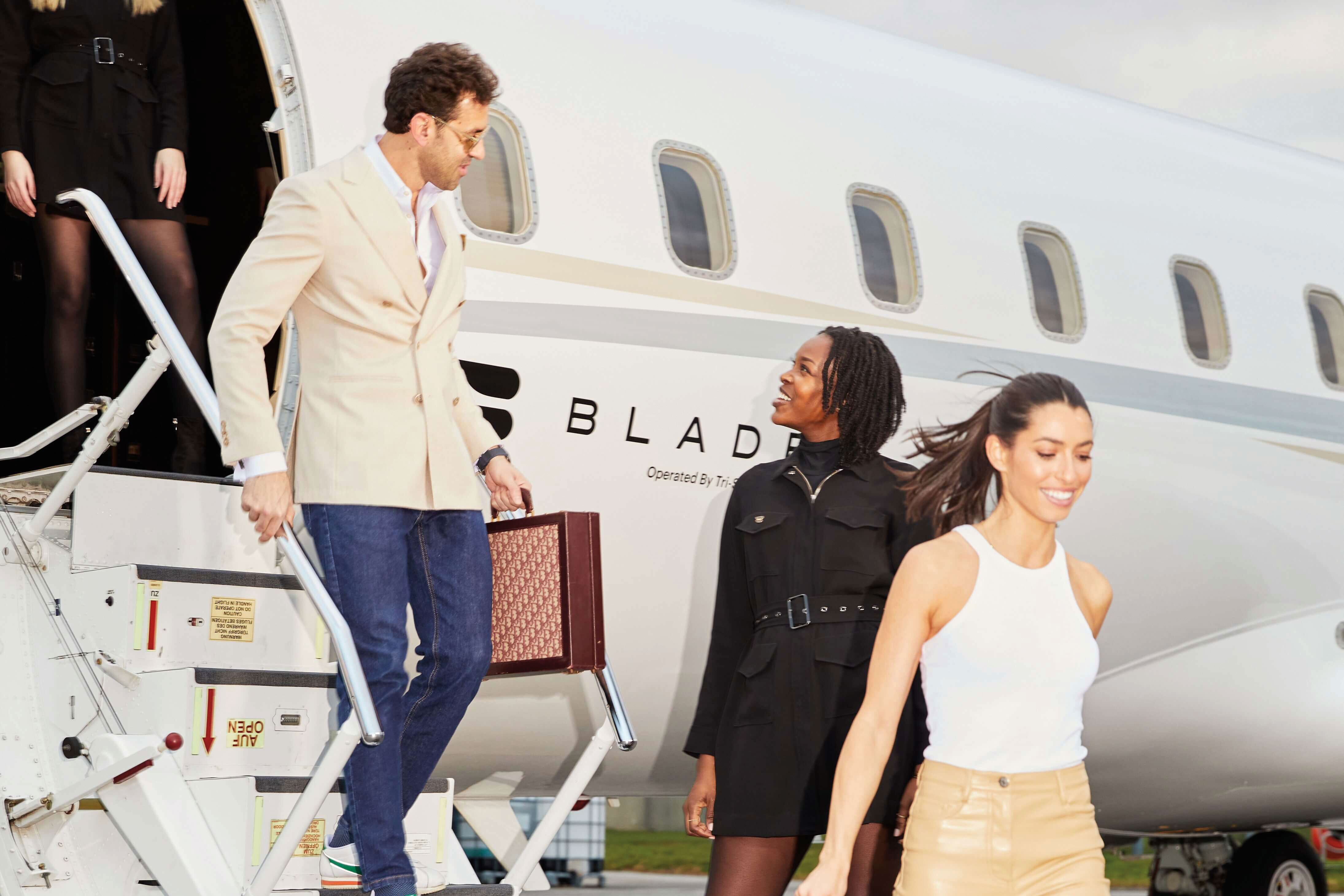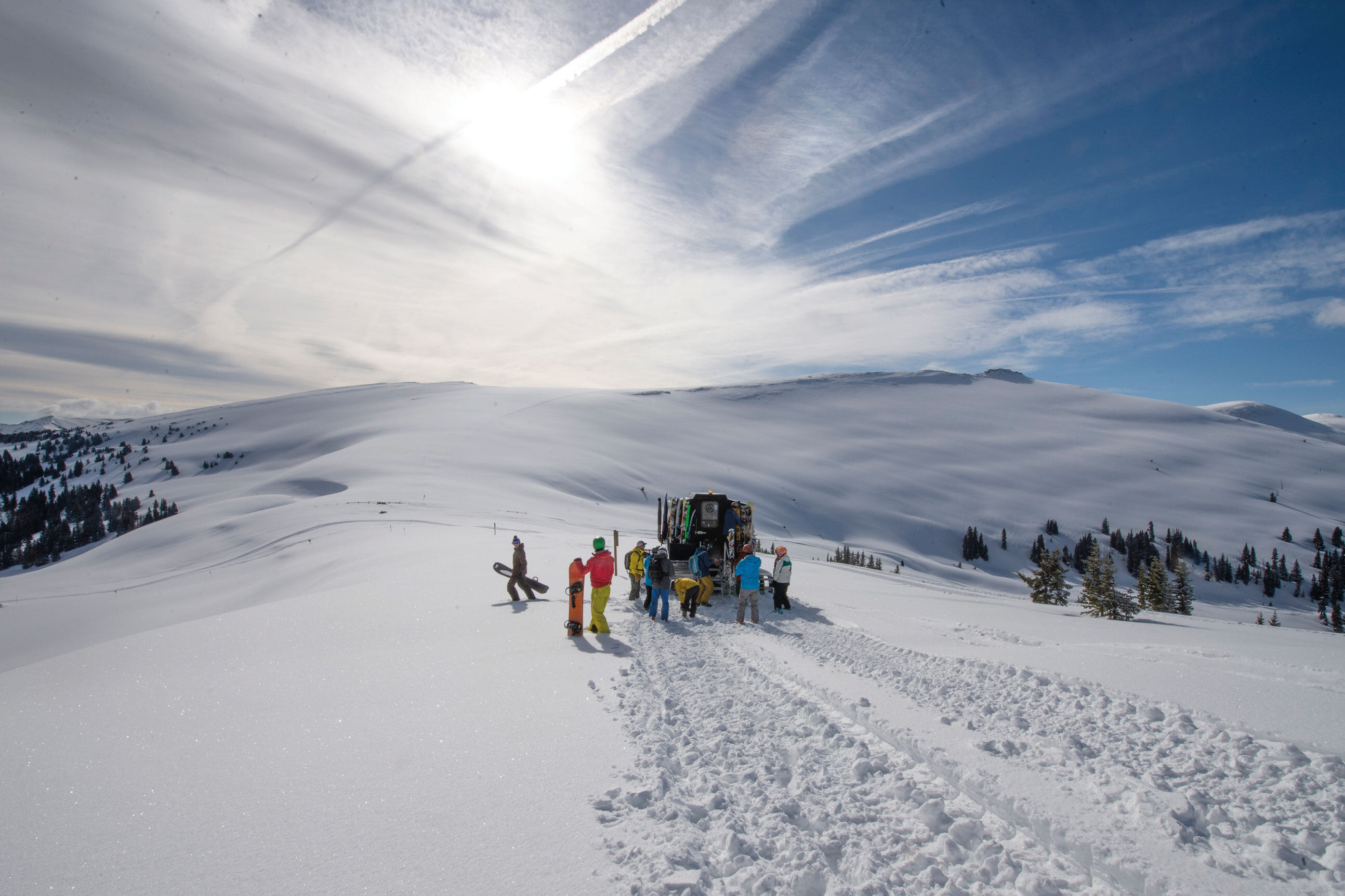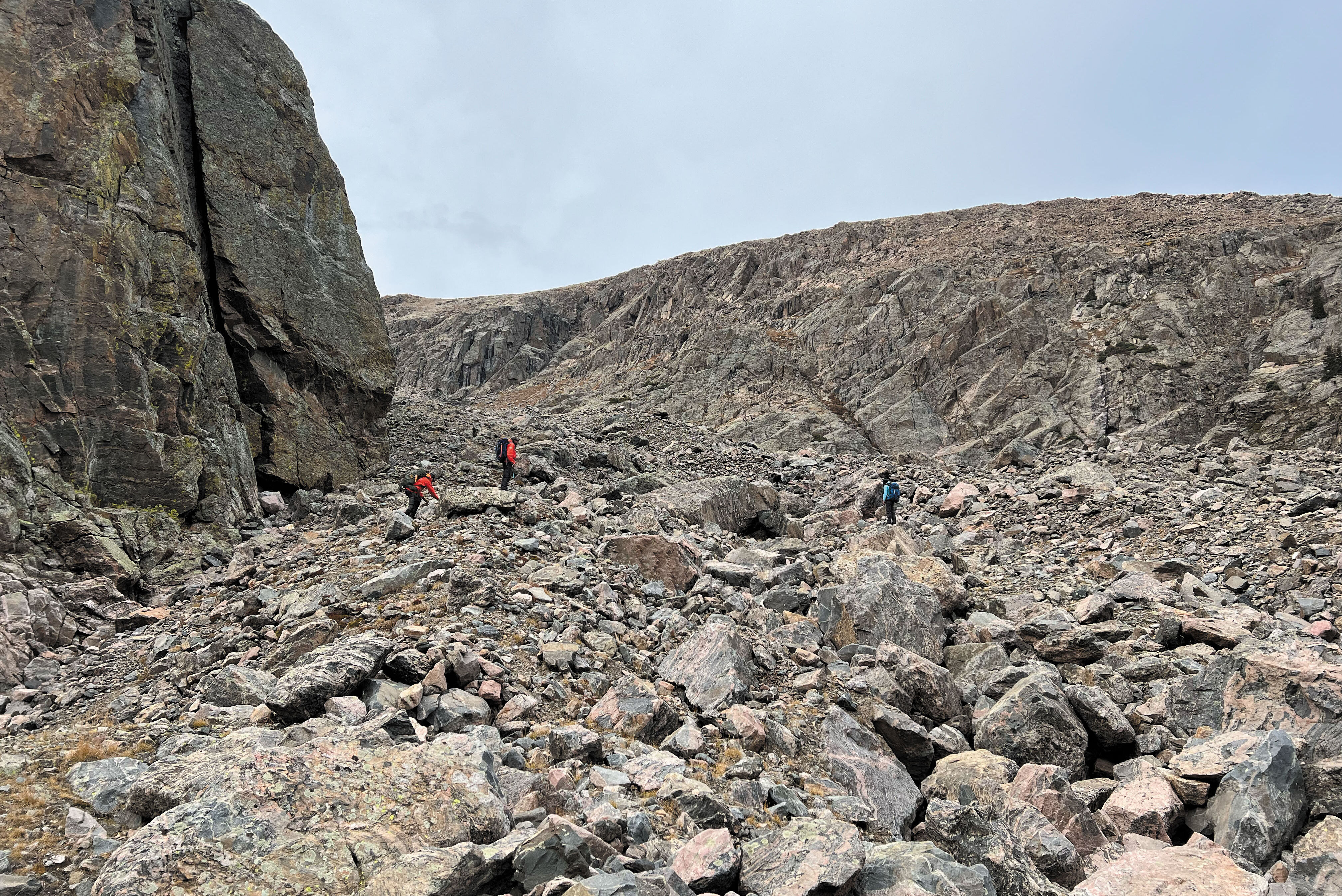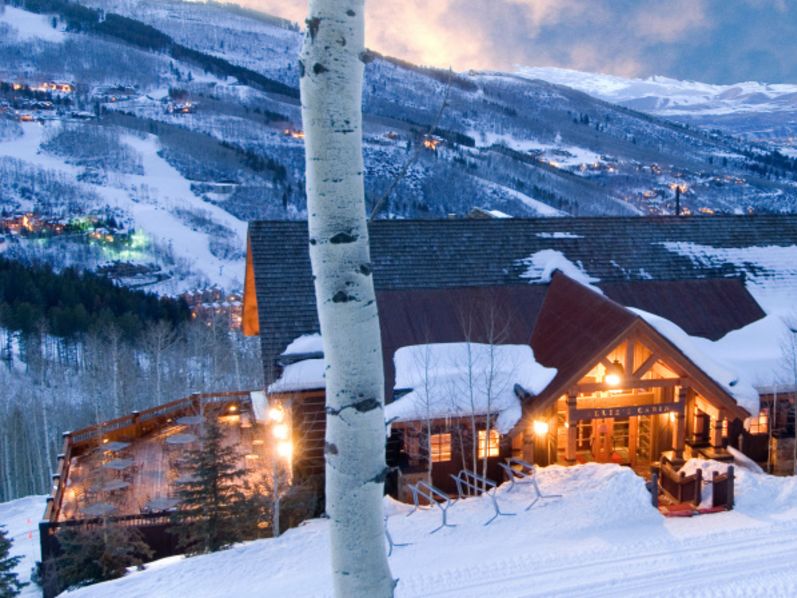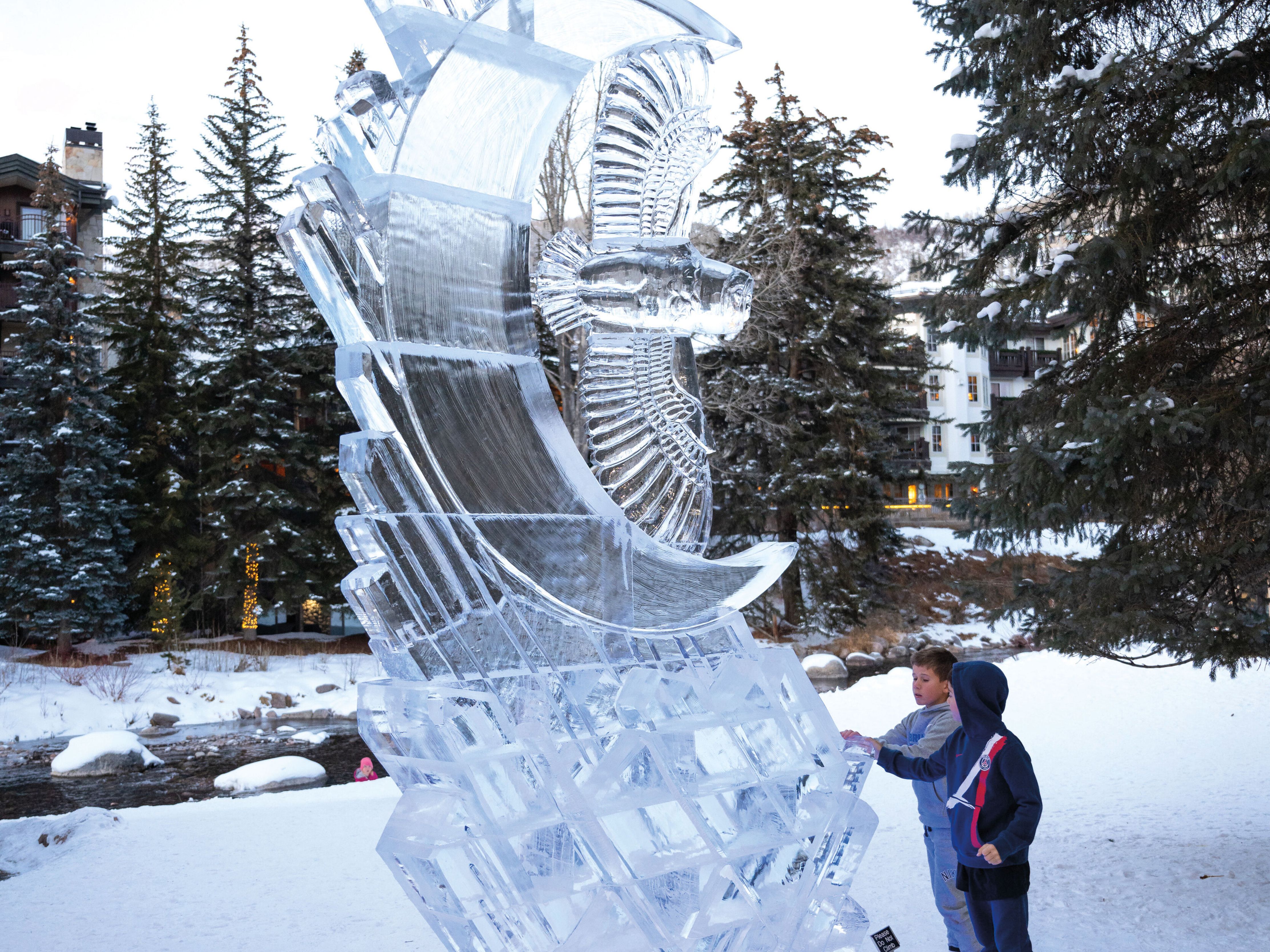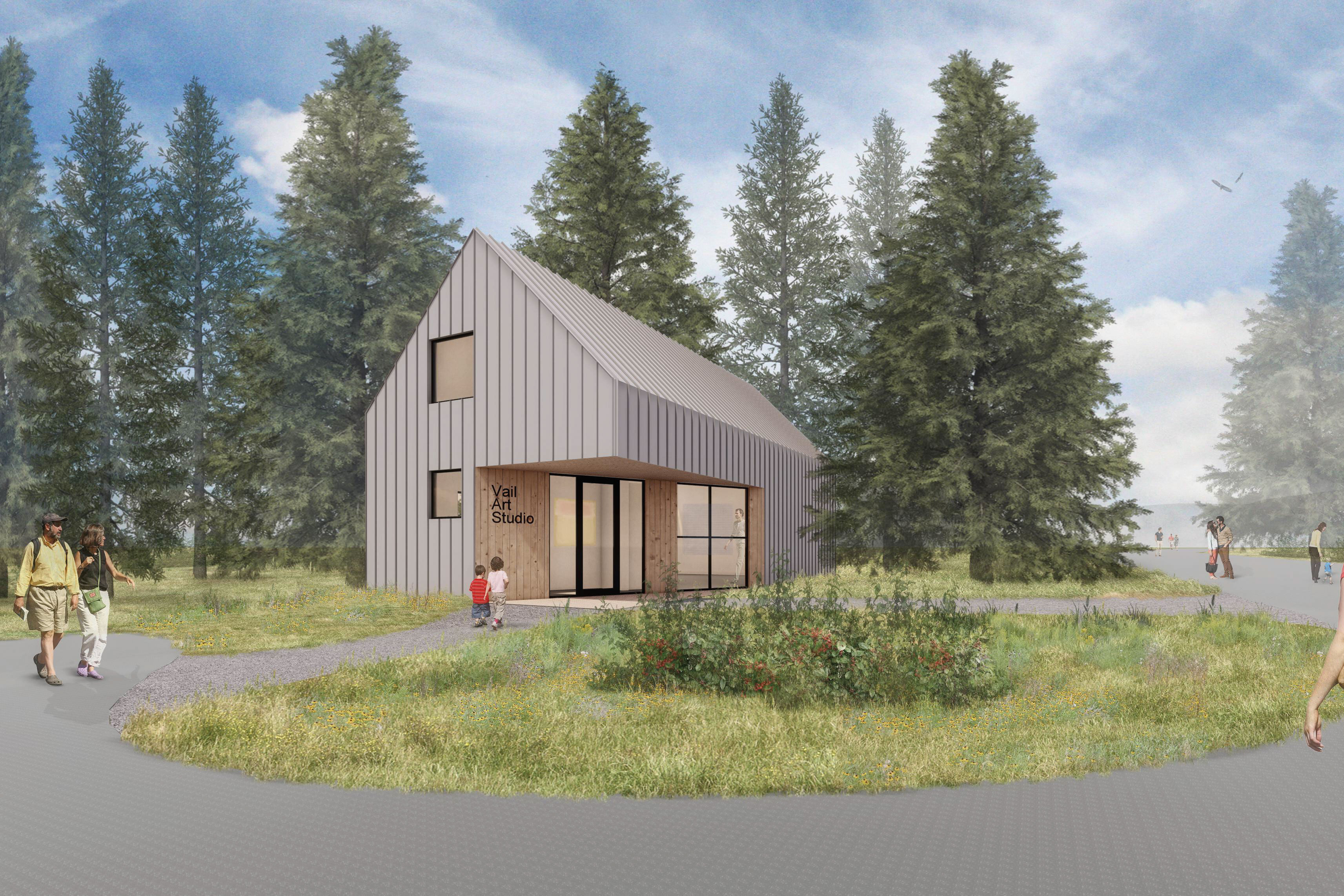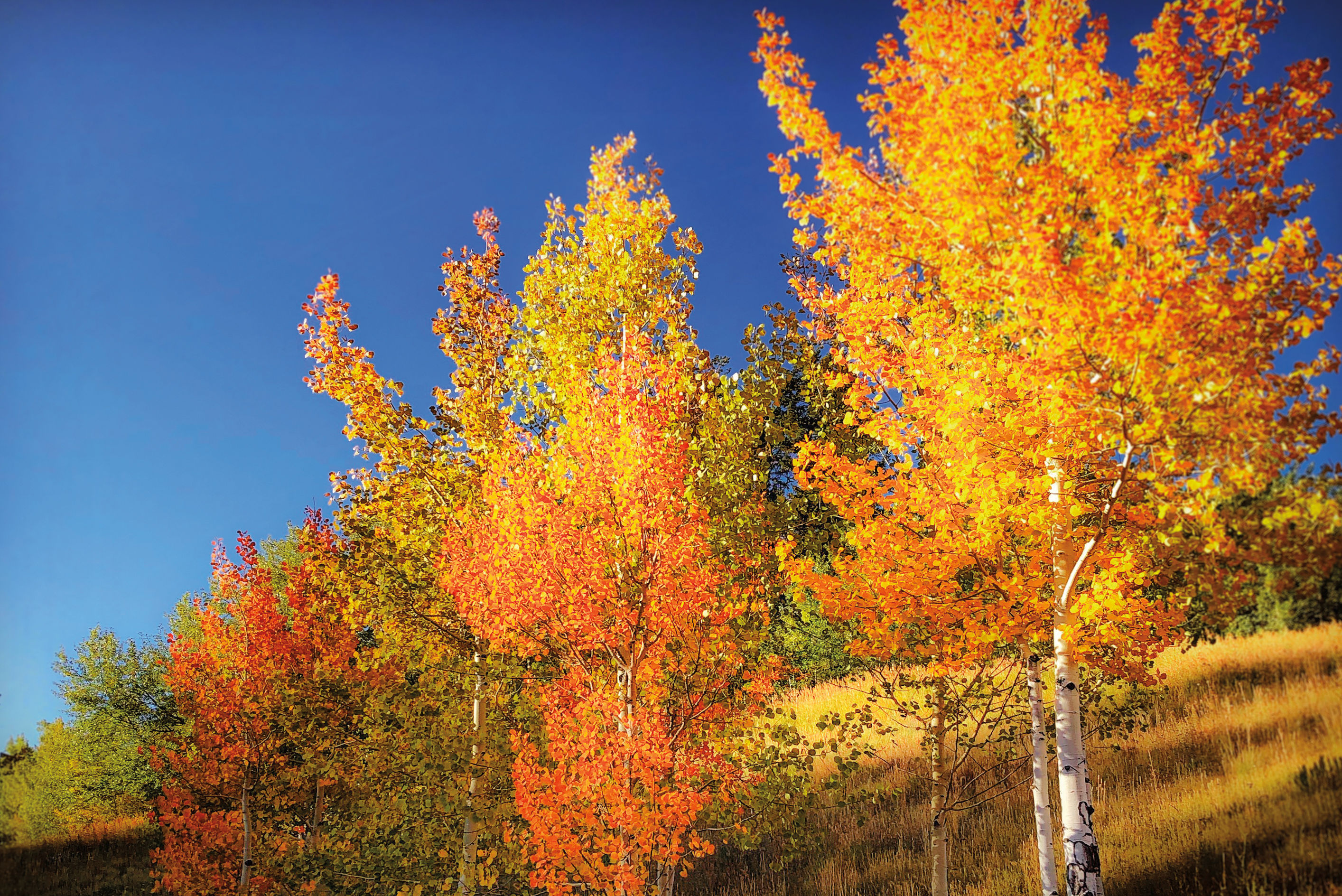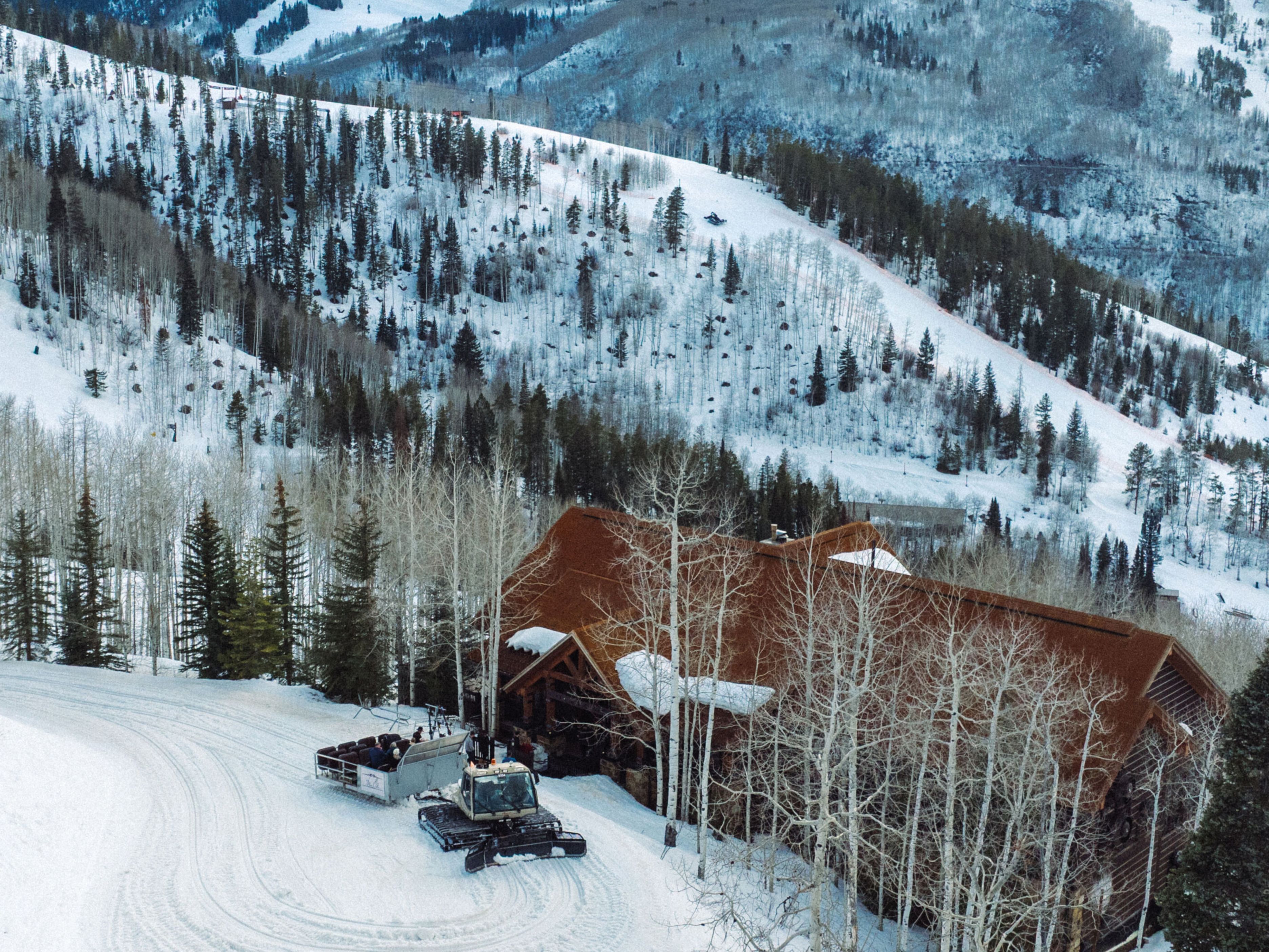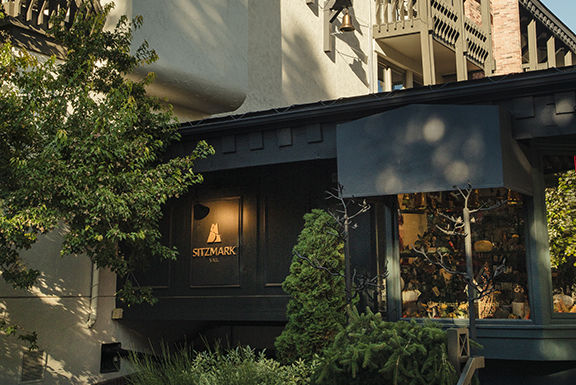World Cup Races are Great—but What About the Olympics?
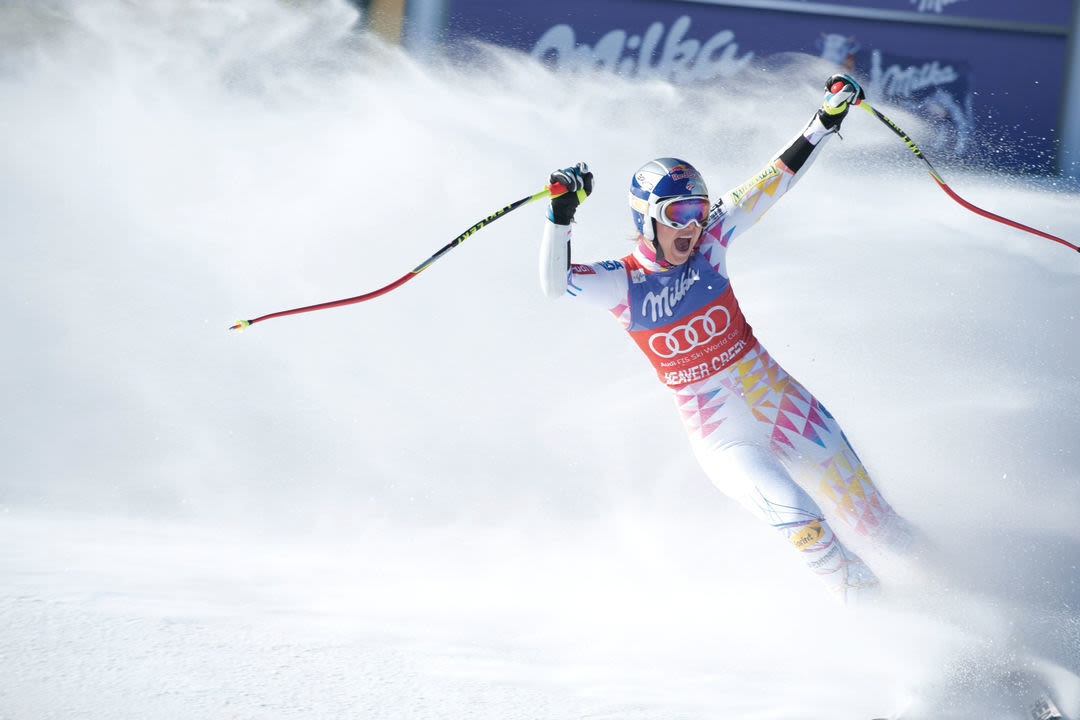
Beaver Creek has hosted some of the best ski racers in the business, including Vail's own Lindsey Vonn. But should the Vail Valley one up the World Cup and attempt to host Olympic ski racing?
Image: Jack Affleck
Cindy Nelson remembers exactly what it felt like to march in the Opening Ceremony at the 1976 Olympic Winter Games. Nelson, then a 20-year-old alpine racer, had been chosen by her fellow American athletes to serve as the flag bearer for Team USA, one of the greatest honors in all of sport. Other flag bearers that year included Franz Klammer, the legendary Austrian downhiller.
“It was probably the most amazing experience of my athletic career, that march into the arena,” Nelson says.
The distinction would have been even more significant if it had happened in her adopted home of Colorado, where the 1976 Olympics were supposed to have taken place. But after the International Olympic Committee awarded Denver the Games in 1970, state residents rejected a 1972 referendum to use taxpayer dollars to help pay the cost of hosting them. As a result, the IOC returned the Games to Innsbruck, Austria, which had hosted the Olympics 12 years prior.
Although Nelson went on to win a bronze medal in the 1976 downhill race, 40 years later she still recalls the sting of finding out that the Americans’ hometown games had been sent elsewhere. “It went from being, ‘This is so great that Denver is getting the Olympics!’ to ‘Hey! What’s going on? They voted it down?’” she says.
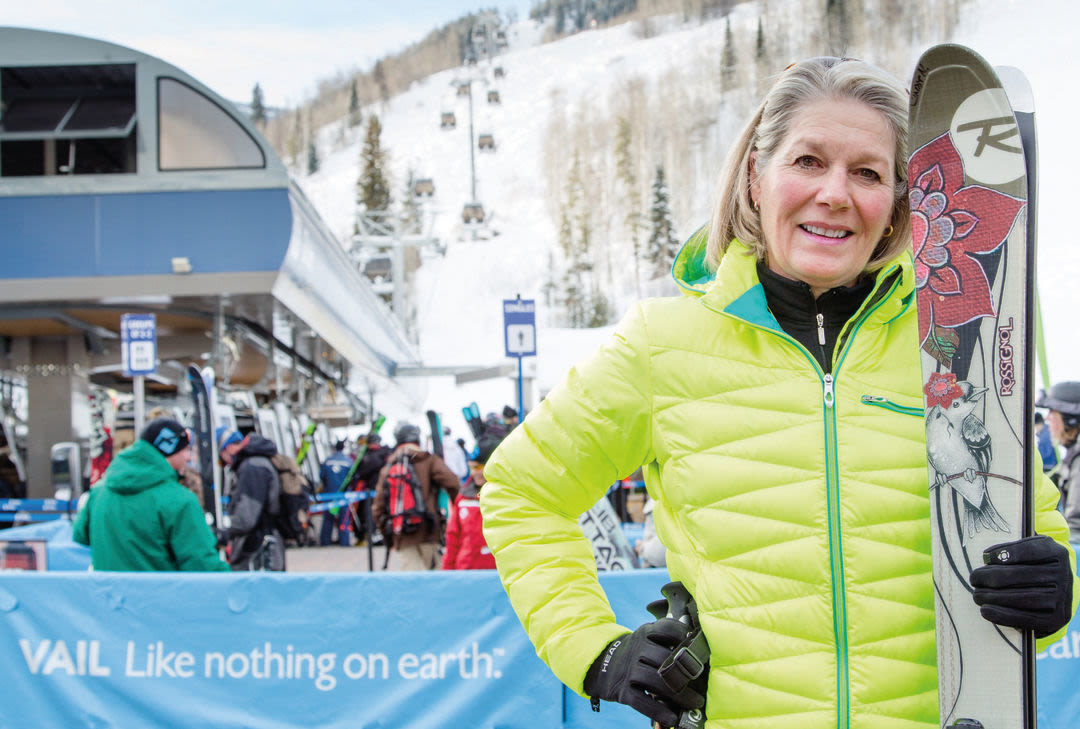
Olympian and ski racing great Cindy Nelson argues that the Vail Valley could host some of the best ski races the Olympics have ever seen.
Image: Zach Mahone
Nelson and many of her teammates did get to compete on home snow four years later, when the 1980 Olympic Winter Games took place in Lake Placid, N.Y. She even won a silver medal in the combined. Yet she wonders what it would have been like to tuck down an Olympic course in Colorado. In February of 2015, Nelson—a Minnesota native who has lived in Eagle-Vail since 1979—watched with pride as the world’s best racers competed for two weeks at the 2015 FIS Alpine World Ski Championships in Vail and Beaver Creek. That event brought to mind once more the prospect of hosting an Olympics in Colorado—and, by extension, in the Vail Valley, the assumed alpine racing venue should this state ever land the Winter Games.
“If the powers that be could put together a successful bid, there is no question in my mind that Colorado would host the best Winter Olympics ever,” Nelson says. “And with what we showed them during the World Championships, there is no question that Vail can do its part.”
Nelson is not alone in that sentiment. During the 2015 Worlds, a handful of key Denver power brokers were also in attendance. Some have been trying to bring the Olympics to Colorado for two decades, and the thousands of overjoyed fans who filled the stands at Beaver Creek’s Red Tail finish stadium and packed awards ceremonies and after-parties in Vail Village confirmed what they have long believed: that Vail and Beaver Creek would make worthy Olympic hosts. But it is far from that simple, of course.
Colorado has tried to land at least six Olympic Winter Games, starting with the 1932 and 1956 versions, when a prospective host city didn’t have to be sponsored by its national Olympic committee. More recently, the state tried to bid for the 1998, 2014, 2018, and 2022 games. The last of those years was seen as the most viable by those who have been involved for a while, but the United States Olympic Committee decided not to back a Colorado bid. Now, with the USOC consumed by its attempt to bring the 2024 Summer Games to Los Angeles and unlikely to bid for the 2026 Winter Games, the next Olympics that Colorado could aim for would be 2030. But should the Centennial State throw its hat into those five interlocking rings?
A lot has changed in the Olympic-hosting formula since 1976. For starters, the concern that hosting the Olympics would lead to uncontrolled urban sprawl in the Mile High City has been debunked. “We now know that some places are going to grow regardless, like Denver, and some aren’t, like Lake Placid,” says Rob Cohen, who founded the Metro Denver Sports Commission and has been involved with the effort to bring the Olympics to Colorado for 20 years. “But there is no correlation between hosting the Olympics and growth.”
There is, however, a correlation between hosting the Olympics and ending up in debt. Every Olympics since 1960 has run over budget, and according to IOC rules it’s the host city’s responsibility to absorb any red ink. This is one reason why the IOC has had such a hard time attracting bids recently—and why a city like Beijing, a summer Olympics venue with no alpine history (the nearest mountain is barren and will have to manufacture snow) but with deep pockets, just won the right to host the 2022 Winter Games.
Despite all of those factors, Colorado remains “incredibly well positioned to host” the Olympics, says Don Elliman, the former Sports Illustrated president who co-chaired Denver’s 2022 exploratory committee. The vast majority of facilities (e.g., the seven jumps at Steamboat Springs’ Howelsen Hill and Beaver Creek’s Raptor and Birds of Prey downhills) are already in place. Elliman also believes the state could pull off an Olympics with a net economic benefit, thus appeasing some of the worries that doomed the 1976 bid. “We had preliminary polling that suggested if we could do this without using taxpayer dollars, they would support it,” Elliman says. “We demonstrated to ourselves that we could do that. The tricky part is: somebody needs to guarantee it.”
Cohen says he and others will continue to work on a bid. The potential is too great not to, he maintains. Cindy Nelson agrees. “It would just be fantastic,” she says.
Nevertheless, officially speaking, 40 years after Coloradans gave away their Olympics, they are still no closer to bringing them back. —Devon O’Neil

